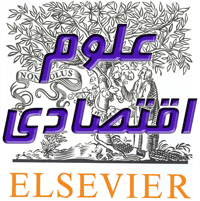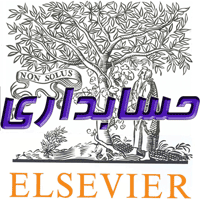دانلود مقاله isi تاثیر کنترل داخلی و تنظیم مدیریت ریسک بر کیفیت درآمد
دانلود رایگان مقاله الزویر در مورد تاثیر کنترل داخلی و تنظیم مدیریت ریسک بر کیفیت درآمد : مدارک و شواهد از آلمان (کلیک کنید)
توضیحات :
وبسایت مکاله اقدام به ارائه پروژه ی ساینس دایرکت با فرمت pdf، از انتشارات الزویر برای رشته حسابداری، و با عنوان تاثیر کنترل داخلی و تنظیم مدیریت ریسک بر کیفیت درآمدها: مدارک و شواهد از آلمان، نموده است.
مشخصات این مقاله :
عنوان مقاله :
The effect of internal control and risk management regulation on earnings quality: Evidence from Germany
ترجمه فارسی عنوان :
تاثیر کنترل داخلی و تنظیم مدیریت ریسک بر کیفیت درآمدها : مدارک و شواهد از آلمان
سال انتشار : 2013
متعلق به مجله یا ژورنال : مجله حسابداری و سیاست های دولتی (Journal of Accounting and Public Policy)
فرمت: PDF
تعداد صفحات: 31
شماره پروژه: 5028
چکیده :
Abstract
We investigate the impact of mandatory internal control and risk management (ICRM) reform on earnings-based attributes of accounting quality in Germany. Although prior studies examine changes in accounting quality under SOX Sections 302 and 404, there is scant evidence of the accounting quality effects of ICRM reform in foreign jurisdictions. Such evidence is warranted given the ongoing global policy debate of ICRM reform in the post-SOX era. We extend existing research by examining changes in earnings quality following the 1998 German legislation on control and transparency (KTG). The KTG regime provides a unique setting in which the regulatory scope extends beyond internal control over financial reporting (ICFR) to include broad business and enterprise risk control. Using both a differences and difference-in-differences research design, we find that German firms experience an increase in timely loss recognition and a decrease in earnings smoothing after KTG.We also find some evidence of a decrease in loss avoidance behavior.
Additional analyses show that the sensitivity of capital investment efficiency to earnings quality increases in the German market after KTG, suggesting that earnings quality effects of mandatory ICRM reform has positive consequences for capital resource allocation. Together, our results are consistent with the achievement of one of the intended outcomes of ICRM regulation—increased accounting quality through effective ICRM systems.
مقدمه این مقاله :
Introduction
The implementation, assessment, and monitoring of effective internal control and risk management (ICRM) systems is a key determinant of financial reporting quality. Specifically, high-quality ICRM systems curtail the intentional manipulation of information reported to outsiders, reduce the risk of random procedural and estimation errors in reporting, and mitigate the inherent risks of business strategies and operations that may affect the quality of reported information (COSO, 1992). While the demand for ICRM quality exists in the absence of regulation, compliance with regulatory requirements can force managers to increase and/or maintain ICRM quality (Hermanson, 2000; Kinney, 2000). Accordingly, ICRM reforms such as the 1998 German legislation on control and transparency (Gesetz zur Kontrolle und Transparenz im Unternehmensbereich; ‘‘KTG’’),1 2002 U.S. Sarbanes-Oxley Act (‘‘SOX’’), 2005 Canadian Securities Administrators’ Multilateral Instrument 52-109 (‘‘SOX North’’), and the 2008 Japan Financial Instrument and Exchange Law (‘‘J-SOX’’) have been promulgated under the principle that improving ICRM quality should increase the quality and transparency of financial information (Deutscher Bundestag, 1998a,b; Donaldson, 2005; CSA, 2005; FSA, 2006).2 Despite widespread global adoption of ICRM mandates (especially in the post-SOX era), there is scant evidence on accounting quality effects of mandatory ICRM reform in non-US capital markets. Prior research on the accounting quality effects of ICRM regulation focuses largely on the US setting and, in particular, the regulatory requirements of SOX Sections 302 and 404, which are limited to internal control over financial reporting (ICFR) and exclude broad business risk controls (SEC, 2003).3 US-based studies document that firms reporting ICFR weaknesses under SOX have ex ante poor accounting quality (Doyle et al., 2007a; Chan et al., 2009) and that some firms experience an increase in accounting quality following improvements in ICFR quality (Bédard, 2006; Ashbaugh-Skaife et al., 2008; Goh and Li, 2011; Singer and You, 2011). However, this body of evidence is limited either to large firms (i.e., accelerated filers) or to firms that report or remediate ICFR weaknesses. Thus, results may not be generalizable to all firms subject to the regulation and even less so to firms subject to ICRM mandates in non-US regulatory regimes. As Fig. 1 depicts, current international legislation on ICRM varies greatly from the extensive management assessment and external audit of ICFR under SOX. These variations reflect the institutional framework of each country as well as regulators’ attempts to improve upon the cost-benefit tradeoffs of the SOX model (FEE, 2005; Lu et al., 2011). Also, international jurisdictions continue to adopt a broad enterprise-based approach to ICRM as defined in key frameworks (Deumes and Knechel, 2008).
توجه :
– این مقاله به صورت کامل و با فرمت پی دی اف آماده خرید اینترنتی و دانلود آنی میباشد.
دانلود رایگان مقاله الزویر در مورد تاثیر کنترل داخلی و تنظیم مدیریت ریسک بر کیفیت درآمد : مدارک و شواهد از آلمان (کلیک کنید)

